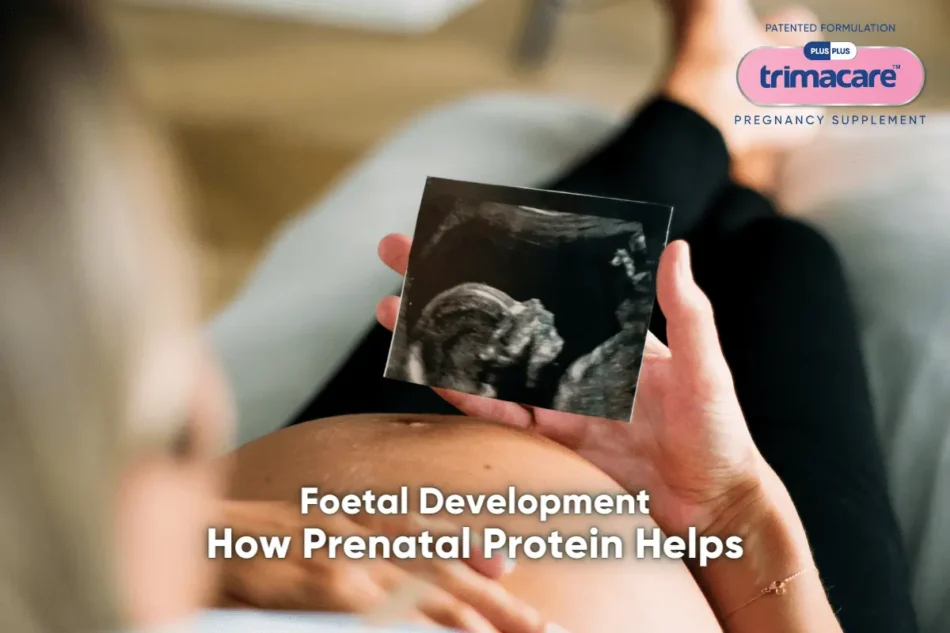Pregnancy is a crucial time when you need to fuel not only your body but also your developing baby. Although prenatal vitamins and a healthy diet are often the focus, one vital nutrient frequently overlooked is protein. Protein plays a crucial role in foetal development, helping in the building of cells, hormones, enzymes and even the placenta. But how will you know if you are falling short on protein or not? protein during pregnancy how can you fix it?
Here are the common signs that indicate you might be protein deficient during pregnancy, and how the right supplements during pregnancy and dietary choices can fix it.
Some common symptoms of protein deficiency
Insufficient protein intake in the diet may have a serious impact on health and lead to low protein in the blood. The three main symptoms of protein deficiency are swelling, stunted growth and poor immunity.
There are some more signs of protein deficiency-
- Swelling and water retention – Protein helps to regulate fluid balance within your body. A lack of protein during pregnancy can lead to fluid seeping into the tissues around your body, causing swelling, especially in your lungs, hands and feet.
- Persistent weakness and fatigue- It’s natural to be tired during pregnancy, but intense exhaustion may indicate protein deficiency. Protein helps in repairing and constructing body tissues. If there is insufficient protein, your muscles may start deteriorating, making you feel weak and drained all the time.
- Frequent illness or slow recovery- Protein is needed for a good immune system. If you are frequently falling sick or taking a long time to get well from a common cold, your protein level during pregnancy may be too low.
- Hair loss and Brittle Nails- Pregnancy must go hand in hand with a healthful glow, but if your hair is falling out more than usual or your nails are breaking continuously, it could be a warning sign. Protein is the building block for keratin- the protein found in your hair and nails.
- Poor growth of foetus- Poor maternal protein intake may impact foetal growth. Your baby uses amino acids- protein building blocks- to build organs, tissues and muscles. If your doctor observes slow foetal growth or low birth weight, inadequate protein intake in pregnancy may be the issue.
Tips to fix protein deficiency during pregnancy
- Try to include protein-rich foods such as lean meat, beans, tofu, dairy and eggs in your diet. If you find it difficult to meet all the needs from foods alone, therefore, consider a protein supplement for pregnancy, which is recommended by doctors.
- In addition to drinking plenty of water, make sure you are getting plenty of protein each day. Several pregnant women find that a pregnancy-safe protein or prenatal protein powder can satisfy their daily needs without additional meal preparation.
- Include protein-rich foods that have immune-boosting properties, such as chicken, low-mercury fish, Greek yoghurt and legumes. A high-quality protein supplement for pregnancy can also fortify your immune system during this important period.
- Include protein-rich snacks such as nuts, seeds and cottage cheese in your diet. You can also include prenatal protein supplements that are formulated to nourish nails and hair, together with other supplements during pregnancy, such as omega-3 and biotin.
Choosing the right protein supplement for pregnancy
When choosing a pregnancy protein supplement, select one that is:
- Specially designed for pregnant women
- Free from artificial sweeteners and toxic additives
- Third-party tested for safety and quality
Trimacare: The most reliable protein supplement during pregnancy
Trimacare pregnancy vitamin tablet is formulated according to the ICMR and WHO multi-micronutrient model and developed under the guidance of renowned doctors, pharmacologists and nutritionists. Trimacare protein supplement for pregnancy has more than 20 essential nutrients.
Protein in the Trimacare protein supplement offers an equilibrated blend of useful amino acids, maintaining speedy cellular divisions and differentiation. Trimacare prenatal multivitamin offers trimester-specific support for the requirements of Indian mothers and their babies at each stage of pregnancy.
Conclusion
Getting adequate protein during pregnancy is vital for your health and your baby’s growth. If you are experiencing such symptoms as tiredness, loss of hair, swelling or sluggish foetal growth, it might be time to review your diet. Moreover, adding the right protein supplement for pregnancy along with the diet can help keep you on track.
 WhatsApp Us Now
WhatsApp Us Now







